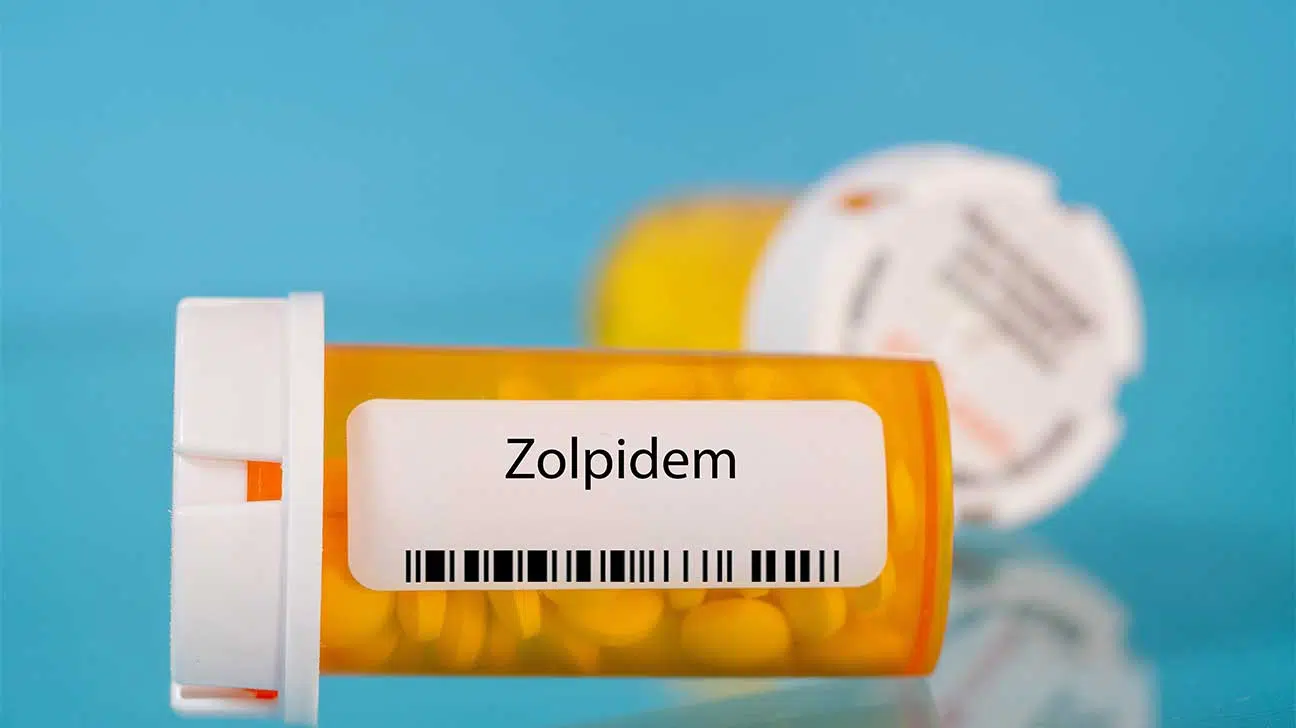
Ambien (brand name for zolpidem) is a sleep aid that healthcare providers prescribe for short-term use for relief from insomnia or trouble falling asleep.
They may also prescribe Ambien CR (controlled release) which affects the brain for a longer period of time than normal. Ambien which has a relatively short half-life.
However, Ambien is on the Schedule IV controlled substances list, which puts it in the same category as benzodiazepines such as Valium (diazepam) or Xanax (alprazolam).
Sometimes, it has dangerous side effects and can cause mental impairment the following day. For this reason, doctors suggest supplements or certain antidepressants before prescribing Ambien.
Why Ambien Is Considered A Schedule IV Controlled Substance
Ambien is considered a Schedule IV controlled substance, because it is a central nervous system (CNS) depressant with an abuse potential comparable to other CNS depressants in that category.
Dangerous behaviors while asleep on a normal dose of Ambien include:
- driving
- preparing and eating meals
- sleepwalking
These behaviors can cause serious injuries, so your doctor may put you on lower doses of Ambien.
However, its abuse potential is not as high as in Schedule III or Schedule II drugs.
Low Drug Abuse Potential
Relative to other drug schedules, Ambien’s potential to be abused is low. In one study that tested Ambien on drug-naive participants, they routinely chose money over the drug in exit surveys.
However, compared to over-the-counter sleeping pills, Ambien does have the potential to be abused.
Low Potential For Dependency
When prescribed as a short-term treatment, Ambien has a low potential for dependency. However, when taken in the long term, that potential increases.
When Did Ambien Become A Controlled Substance?
Ambien was approved by the Food and Drug Administration (FDA) in 1992, then added by the Drug Enforcement Administration (DEA) to the drug schedule as a controlled substance in February of 1993.
Ambien’s active ingredient is zolpidem tartrate, which is responsible for instigating a sleep state.
There are serious side effects with Ambien use, so it’s important to get medical advice if you have sleep problems before taking Ambien or other sleeping pills.
What Class Of Drugs Does Ambien Belong To?
Ambien belongs to a class of drugs called sedative-hypnotics which includes Lunesta and Sonata.
These drugs are similar to benzodiazepines in that they interact with gamma-aminobutyric acid (GABA), but they are distinct from benzos.
Benzos bind indiscriminately to all benzodiazepine receptors, but sedative-hypnotics like Ambien bind to the BZ1 receptors, so these drugs are not helpful as myorelaxants (muscle relaxants) or anticonvulsants.
Health Risks Of Misusing Ambien
Even though Ambien has a low potential for abuse, Ambien addiction and its common side effects still take place.
If you are misusing Ambien, you may experience the following side effects:
- sleepwalking
- sleep-driving
- short-term memory loss
- mental health problems like depression
- continual drowsiness
- confusion
- difficulty functioning the next morning or all the next day
- physical dependence
Side effects of Ambien abuse can include lower inhibitions, similar to other forms of sleeping pill abuse.
If you are awake when you are on Ambien, you can do things that you would not normally do or act in ways that you would not normally act.
What Ambien Abuse Looks Like
Ambien abuse looks like other forms of substance abuse. You take the drug compulsively and more than the recommended dose with worsening side effects.
Ambien is meant to be taken right before bed. Once you take it, you are to stay in bed until you fall asleep. Ambien abuse may look like taking the drug during the day, even multiple times.
Find Treatment Services For Ambien Addiction
If you are experiencing an Ambien addiction, you can get help. Addiction treatment for Ambien is available at treatment centers around throughout the United States.
Treatment options for Ambien addiction may include:
- inpatient or outpatient care
- management of withdrawal symptoms
- evidence-based therapy
- aftercare
At AddictionResource.net, we offer confidential help so you can find a treatment center for Ambien addiction in your city or your region. Call our helpline today to learn more.
Addiction Resource aims to provide only the most current, accurate information in regards to addiction and addiction treatment, which means we only reference the most credible sources available.
These include peer-reviewed journals, government entities and academic institutions, and leaders in addiction healthcare and advocacy. Learn more about how we safeguard our content by viewing our editorial policy.
- Behavioural Pharmacology
https://www.ncbi.nlm.nih.gov/pmc/articles/PMC3077937/ - Drug Enforcement Agency
https://www.deadiversion.usdoj.gov/schedules/orangebook/a_sched_alpha.pdf - National Center for Biotechnology Information
https://www.ncbi.nlm.nih.gov/books/NBK442008/ - National Library of Medicine: MedlinePlus
https://www.ncbi.nlm.nih.gov/books/NBK442008/ - Sage Open Medicine
https://www.ncbi.nlm.nih.gov/pmc/articles/PMC5423710/


